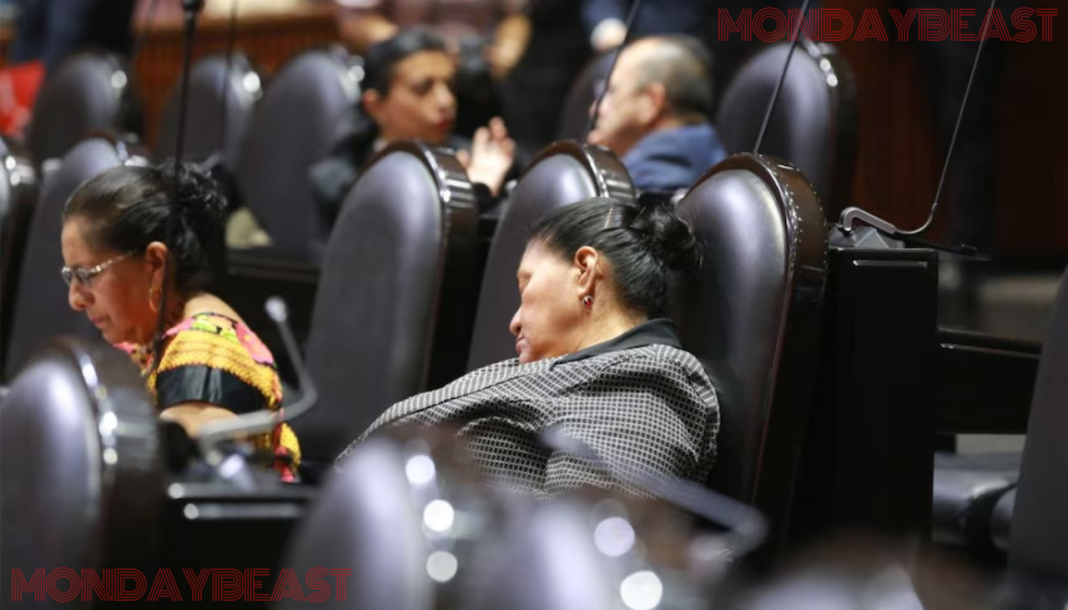A recent incident in Mexico’s Congress has stirred emotions. A photo of Herminia López Santiago sleeping during a session sparked a wave of reactions online. Critics were quick to take to social media, hitting the ‘share’ button at a rapid pace.
Why did this one image strike such a chord? The irony was hard to miss—while the diputada was caught dozing off, the session focused on a crucial constitutional reform regarding animal welfare. Here lies the crux of the issue: her role as a representative demands engagement, especially on critical matters.
Some might argue that a midday nap can boost productivity and concentration, as experts often claim. But sleeping on the job? That raises a serious question about accountability. Could this misstep reflect a broader trend in how politicians engage with their responsibilities?
Herminia López Santiago offered her side of the story. She claimed fatigue due to long hours and travel back to Oaxaca. “I’ve been working hard for my constituents,” she stated, defending her commitment. But does that justify dozing off in such a vital environment?
Interestingly, López Santiago’s position is as a plurinominal representative. This means she did not directly earn her seat through votes. Instead, it’s a selection based on party representation. Critics argue that this system may foster disconnect from the electorate. Does sleeping during sessions imply a disconnect from her constituents’ needs?

The shocking contrast of her $75,609 monthly salary with her lack of alertness during an important debate truly fuels discontent. Users on social media pointed out this glaring disparity, suggesting her dozing off is a sign of disrespect. One user tweeted, “How can we trust them with our vote?” It feels like a valid concern.
And yet, amid the criticism, there’s room for empathy. Managing the demands of political life is no small feat. Few might grasp the toll it takes. Nevertheless, public figures carry a weighty responsibility to uphold standards that reignite faith in governance.
What can be done to prevent this? Regular breaks that don’t involve shutting one’s eyes? Or perhaps adjustments to session schedules to align better with lawmakers’ well-being? The implications are vast.
López Santiago’s commitment to advocating for indigenous and Afro-Mexican communities is commendable. Her goals center on agrarian issues and social justice. Yet, if perception matters in politics, how she’s seen in shared moments like this could overshadow her efforts.
In a sense, her nap reflects a larger narrative about dedication and how it’s perceived in the public eye. And when constituents want robust debates and solutions, one must ask—are these politicians truly listening, or is it time to wake up?




